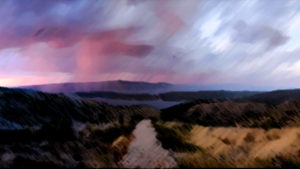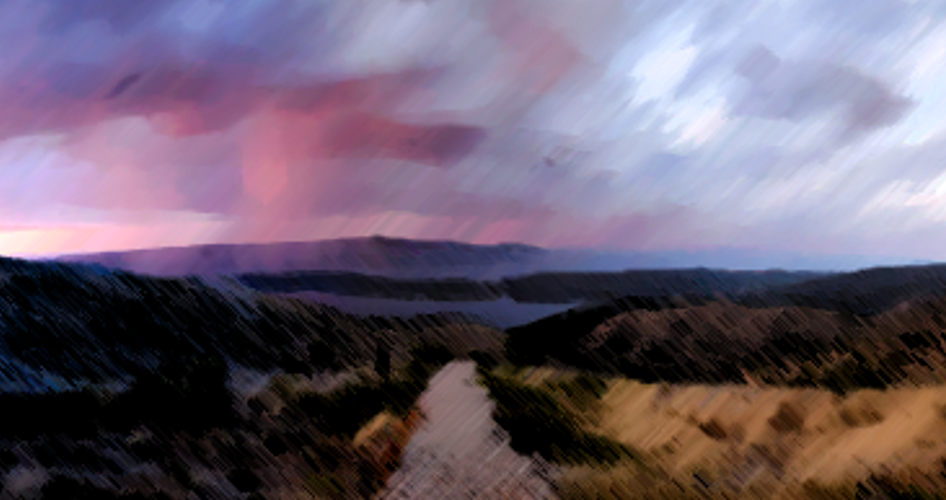The Destiny of the Saint and Sinner
Podcast: Play in new window | Download
Subscribe: RSS
(Part 1 – Preached Sunday Morning – Above)
(Part 2 – Preached Sunday Evening – Below)
 TITLE: The Destiny of Saint and Sinner
TITLE: The Destiny of Saint and Sinner
SUBJECT: Book of Revelation
PROPOSITION: In this lesson, we will study Revelation chapter fourteen and look at the destiny of saint and sinner. Saints have their destiny with Jesus Christ. Sinners have their destiny with the wrath of God.
OBJECTIVE: Each hearer will be motivated to side with Jesus so that he will not suffer the wrath of God.
INTRODUCTION:
1. Read: Revelation 14:6-7
2. About the Text:
1) Verses 6-7 are the key verses of the chapter.
2) This chapter is the time of the preaching of the gospel.
3) It is to be declared to all nations, tribes, tongues and people (Mark 16:15).
4) It speaks about fearing, glorifying, and worshipping God.
5) The gospel is God’s judgment for men: “He who rejects Me, and does not receive My words, has that which judges him—the word that I have spoken will judge him in the last day” (John 12:48).
6) What does the gospel have to say about the destiny of all men?
3. Ref. to S, T, P, O, and A.
DISCUSSION: Saints and Sinners have a different . . .
I. Status
1. The status of the saints (Revelation 14:1-5, 12).
1) They have their Father’s name written on their forehead.
a. They have their Father’s name because they are His children.
b. “And because you are sons, God has sent forth the Spirit of His Son into your hearts, crying out, ‘Abba, Father!’ Therefore you are no longer a slave but a son, and if a son, then an heir of God through Christ” (Galatians 4:6-7).
2) They sing a new song.
a. Because they are a new creation.
b. “Therefore, if anyone is in Christ, he is a new creation; old things have passed away; behold, all things have become new” (2 Cor.5:17).
3) They are the firstfruits to God and to the Lamb.
a. Firstfruits were the initial wave of harvest that was given to God every year.
b. “Of His own will He brought us forth by the word of truth, that we might be a kind of firstfruits of His creatures” (James 1:18).
4) They are without fault before the throne of God.
a. Christ covers their sins with His blood.
b. Christ has reconciled them “in the body of His flesh through death, to present you holy, and blameless, and above reproach in His sight” (Col.1:22).
5) They keep the commandments of God and the faith of Jesus (v.12).
a. To be patient means to obey under adverse situations.
b. “But the ones that fell on the good ground are those who, having heard the word with a noble and good heart, keep it and bear fruit with patience” (Luke 8:15).
2. The status of the sinners (Revelation 14:8-10).
1) Their city is a fallen city.
a. Babylon is a symbol of worldly evil; it was the greatest enemy in the OT.
b. “Adulterers and adulteresses! Do you not know that friendship with the world is enmity with God? Whoever therefore wants to be a friend of the world makes himself an enemy of God” (James 4:4).
2) They worship the beast and his image.
a. The beast serves the great dragon, the devil.
b. “For many walk, of whom I have told you often, and now tell you even weeping, that they are the enemies of the cross of Christ: whose end is destruction, whose god is their belly, and whose glory is in their shame—who set their mind on earthly things” (Phil.3:18-19).
3) They will drink of the wine of the wrath of God.
a. God’s wrath is for the wicked.
b. “For the wrath of God is revealed from heaven against all ungodliness and unrighteousness of men, who suppress the truth in unrighteousness” (Rom.1:18).
II. Death
1. The death of the saints (Revelation 14:13).
1) They are blessed.
a. Because they lived a blessed life and sin has no power over them.
b. Poor in Spirit, Mourn, Meek, Hunger and Thirst for Righteousness, Merciful, Pure in Heart, Peacemakers, Persecuted.
c. “Death is swallowed up in victory” (1 Corinthians 15:54).
2) They die in the Lord.
a. They lived in the Lord.
b. “Jesus answered and said to him, ‘If anyone loves Me, he will keep My word; and My Father will love him, and We will come to him and make Our home with him’” (John 14:23).
3) They rest from their labors.
a. Rest awaits those who work for the Lord.
b. “There remains therefore a rest for the people of God. For he who has entered His rest has himself also ceased from his works as God did from His” (Hebrews 4:9-10).
4) Their works follow them.
a. Because God remembers their works.
b. “For God is not unjust to forget your work and labor of love which you have shown toward His name, in that you have ministered to the saints, and do minister” (Hebrews 6:10).
2. The death of sinners (Revelation 14:10-11).
1) They will be tormented with fire and brimstone.
a. This is eternal separation from God.
b. “Then He will also say to those on the left hand, ‘Depart from Me, you cursed, into the everlasting fire prepared for the devil and his angels’” (Matt.25:41).
2) This will be forever.
a. Jesus said it would be forever.
b. “And these will go away into everlasting punishment” (Matthew 25:46).
3) They will have no rest.
a. Because they did not obey.
b. “And to whom did He swear that they would not enter His rest, but to those who did not obey?” (Hebrews 3:18).
III. Harvest
1. The harvest of the saints (Revelation 14:14-16).
1) The Son of Man harvests the saints.
a. He is the Lord of the harvest.
b. “Then He said to His disciples, “The harvest truly is plentiful, but the laborers are few. Therefore pray the Lord of the harvest to send out laborers into His harvest’” (Matthew 9:37-38).
2) The saints are harvested from the earth, not after.
a. They are harvested through the preaching and teaching of the gospel.
b. “Do you not say, ‘There are still four months and then comes the harvest’? Behold, I say to you, lift up your eyes and look at the fields, for they are already white for harvest!” (John 4:35).
3) They are harvested for God because they are the firstfruits (Rev.14:4).
a. The firstfruits were always given to God.
b. “As for the offering of the firstfruits, you shall offer them to the Lord, but they shall not be burned on the altar for a sweet aroma” (Lev.2:12).
2. The harvest of the sinners (Revelation 14:17-20).
1) The Son of Man does not harvest these, but an “angel.”
a. Angels reap the wicked.
b. “The Son of Man will send out His angels, and they will gather out of His kingdom all things that offend, and those who practice lawlessness, and will cast them into the furnace of fire. There will be wailing and gnashing of teeth.” (Matthew 13:41-42).
2) He harvests a vine from the earth.
a. The vine that did not abide in Him.
b. “If anyone does not abide in Me, he is cast out as a branch and is withered; and they gather them and throw them into the fire, and they are burned” (John 15:6).
3) It is thrown into the great winepress of the wrath of God.
a. This winepress is for destruction.
b. “These shall be punished with everlasting destruction from the presence of the Lord and from the glory of His power” (2 Thess.1:9).
4) This winepress is trampled outside the city.
a. Outside the city is where the guilty were taken for execution.
b. “Then the Lord said to Moses, ‘The man must surely be put to death; all the congregation shall stone him with stones outside the camp’” (Numbers 15:35).
CONCLUSION:
1. Will you be a saint or a sinner?
1) What is your status?
a. Without fault?
b. Fallen?
2) What kind of death will you have?
a. Tormented with no rest?
b. Blessed with rest?
3) In what harvest will you be reaped?
a. The harvest of the Son?
b. The harvest of wrath?
2. Invitation

